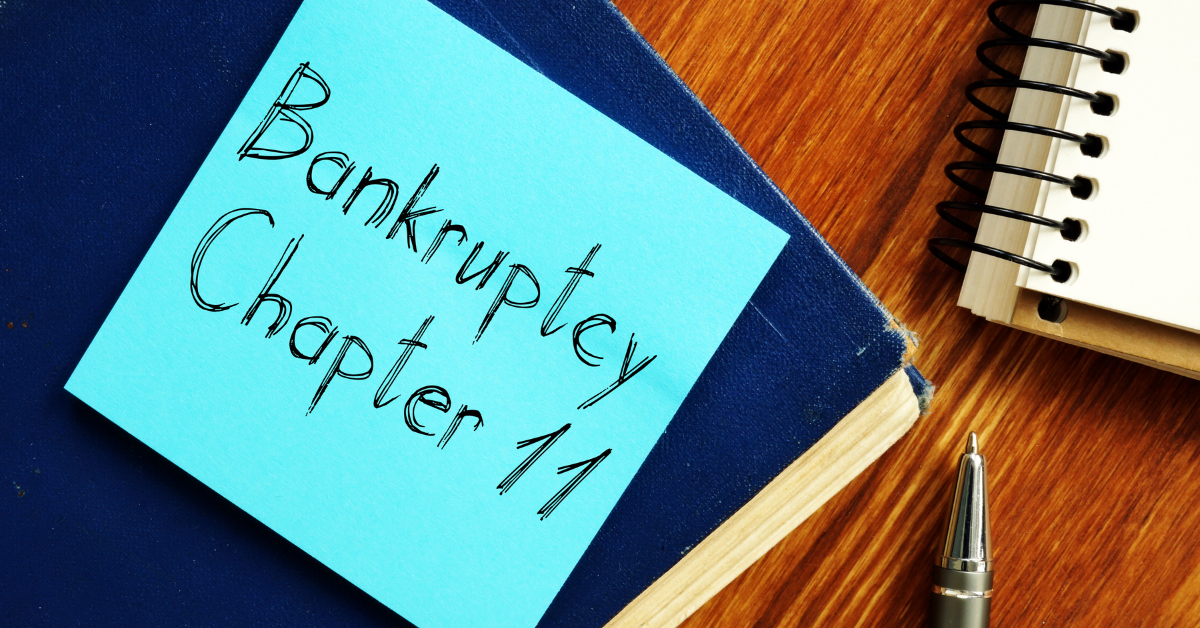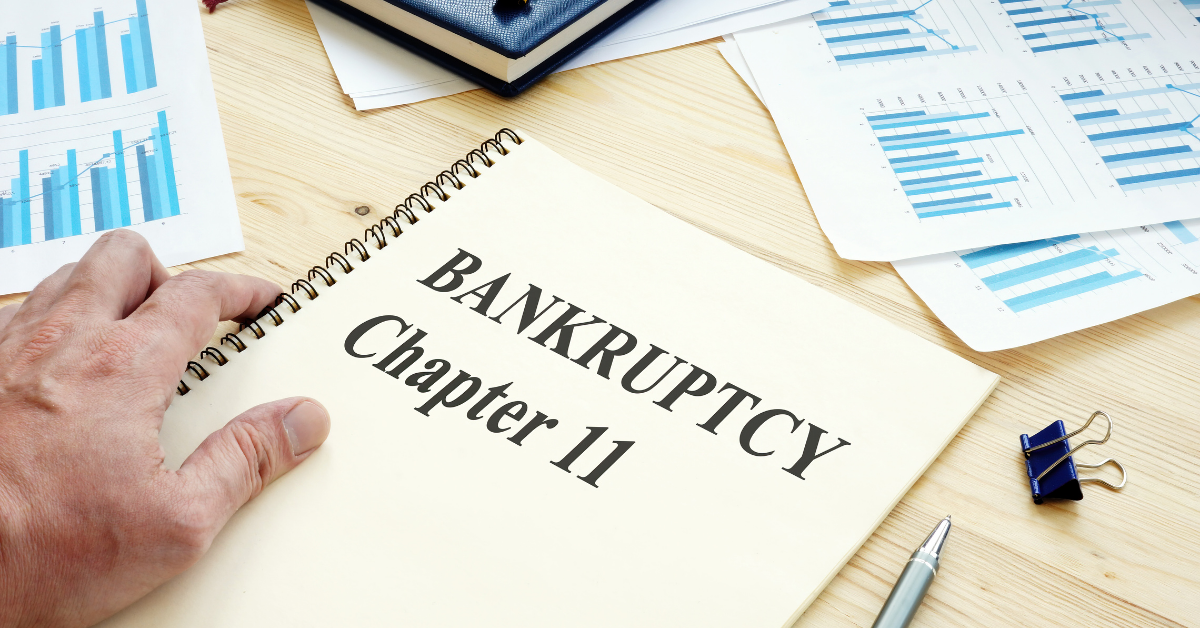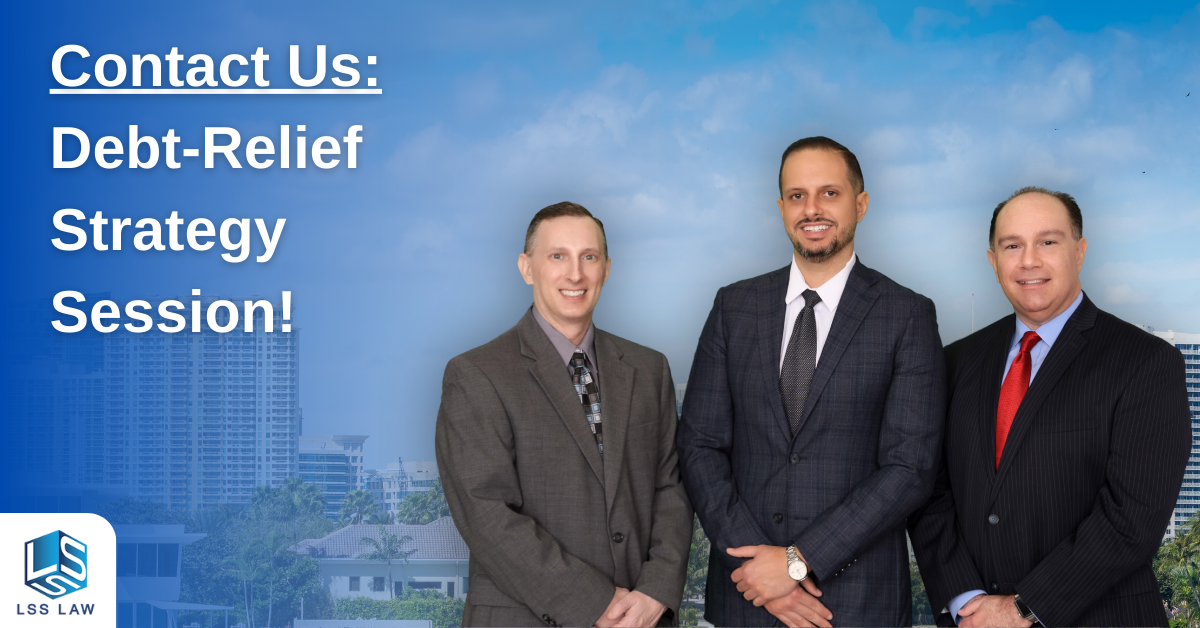Filing for bankruptcy can be a complex and challenging process, especially when it comes to Chapter 11 bankruptcy. Chapter 11 allows businesses and individuals to reorganize their debts and assets under court supervision, with the goal of eventually emerging from bankruptcy as a profitable and restructured entity.
In this comprehensive guide, we will walk through everything you need to know about Chapter 11 bankruptcy, from eligibility and costs to the steps involved and how the process works.
An Overview of Chapter 11 Bankruptcy
Chapter 11 bankruptcy allows both businesses and individuals to restructure their debts while continuing to operate. The primary goal is to devise a repayment plan to repay creditors over time.
It differs from Chapter 7 bankruptcy, which involves liquidating assets to pay off debts. The benefit of Chapter 11 is that debtors can reorganize and potentially emerge from bankruptcy as a profitable business once again.
The bankruptcy code treats small business debtors slightly differently than regular Chapter 11 filings. The Small Business Reorganization Act (SBRA) streamlines the process for small business owners.
Some of the key features of Chapter 11 bankruptcy include:
- The debtor (person or business filing) acts as the “debtor in possession” and retains control of business operations under court supervision.
- An automatic stay halts collection actions, foreclosures, and repossessions.
- The debtor proposes a reorganization plan detailing how they will repay debts over 3-5 years. Creditors vote on approving the plan.
- If the court confirms the plan, the debtor must make payments according to the terms until all creditors are satisfied. Debts not paid under the plan are discharged.
- For small business debtors, the process is streamlined to lower costs and increase speed.
Chapter 11 bankruptcy aims to strike a balance between giving the debtor a chance to recover while ensuring creditors get repaid to the best extent possible. It can be complex, but with the help of an experienced bankruptcy attorney, debtors have a fighting chance at financial rebirth.
Is Chapter 11 Bankruptcy Right for You?
Chapter 11 bankruptcy is primarily intended for business debtors but sometimes can benefit individuals as well. Here are some key factors to consider:
For Businesses

- Your business must have commercial or business activities that lead to debts – Chapter 11 does not apply to consumer debts.
- You have debts that exceed limits for Chapter 13 bankruptcy (around $400,000 secured and $1-2 million unsecured).
- You need time to restructure debts and devise a repayment plan.
- Your business is viable and has a chance of succeeding after reorganizing. Liquidation would not be in creditors’ best interests.
- You are willing to pay administrative costs, which can be higher than other bankruptcies.
For Individuals

- You have too much disposable income to qualify for Chapter 7 but have debts exceeding Chapter 13 limits.
- You need to modify secured debts like mortgages or car loans, which is only allowed in Chapter 11 (not 13).
- You want flexibility in repayment plan length not constrained by Chapter 13 limits (3-5 years).
- You have business debts intermingled with personal debts.
- You are willing to pay higher attorney fees than a typical Chapter 13 case.
If you are unsure whether Chapter 11 is right for you, a qualified bankruptcy attorney can assess your unique situation and advise the best path forward. The key is having enough assets or income to successfully reorganize and repay creditors over time.
Chapter 11 Bankruptcy Process Steps

The Chapter 11 bankruptcy process involves many steps and can take anywhere from 6 months to several years depending on the complexity of the case. Here is an overview of the key phases:
1. Prepare and File the Petition
To begin a Chapter 11 case, the debtor files a bankruptcy petition with the appropriate U.S. Bankruptcy Court. This is typically done with the help of a bankruptcy attorney. Requirements include:
- List of creditors and amounts owed
- Personal financial statements
- Business income statements and balance sheets (for business cases)
- Statement of financial affairs
- Filing fee (varies based on size of debts)
The court then appoints a trustee to oversee the case and creditors are notified of the bankruptcy filing.
2. Automatic Stay and Debtor in Possession
Once the petition is filed, an automatic stay takes effect preventing creditors from collecting debts. The debtor becomes the “debtor in possession” and retains control of business operations under court supervision.
The trustee monitors the debtor’s actions to ensure no improper diversion of funds. The debtor must get court approval for major decisions impacting creditors.
3. First Meeting of Creditors
Within 20-40 days, the U.S. trustee convenes the first meeting of creditors. The debtor is placed under oath and asked about their bankruptcy schedules and financial affairs. Creditors can ask questions but typically don’t.
4. File the Reorganization Plan
Within 120 days, the debtor must file a draft reorganization plan detailing how they will repay debts. The plan classifies claims by type and proposes repayment terms and timeframes.
Secured creditors often get priority and must be paid at least fair market value. Unsecured creditors may get partial repayment depending on assets available. Equity shareholders typically lose ownership unless they invest new funds.
For small business debtors, the plan only needs to be filed within 90 days. It can modify mortgages on commercial property and reduce vehicle loan balances to current values.
The court must find the plan feasible and in the best interests of creditors. Key requirements for confirmation include:
- One class of impaired creditors votes to approve the plan
- Priority claims will be paid in full
- Payments to creditors will equal liquidated value
- Executory contracts will be assumed or rejected
5. Vote on the Reorganization Plan
Creditors grouped into classes get to vote whether to accept or reject the proposed plan. Acceptance requires approval from holders of 2/3rds of the claim amount and more than 50% of the creditors in number.
If any class votes to reject the plan, the debtor can modify the terms and solicit votes again. Creditors who don’t vote count as approving the plan.
Getting Confirmation of the Chapter 11 Plan

For the Chapter 11 reorganization plan to take effect, the bankruptcy court must confirm it. The judge reviews the plan to ensure it meets all legal requirements before giving approval. Key steps in the confirmation process include:
- Disclosure Statement – The debtor must file a disclosure statement providing background on the business, analysis of the reorganization plan, and risks involved. This helps creditors make an informed decision when voting.
- Objections – Parties in the case can file objections to the proposed plan if they believe requirements are not met. Common objections relate to improper classification of claims or feasibility concerns.
- Confirmation Hearing – The judge holds a confirmation hearing to consider approval of the plan. Witnesses and experts may testify. The judge resolves any objections and can deny confirmation if the plan falls short.
- Cramdown Provisions – If certain classes vote to reject the plan, the debtor can use cram-down provisions to get the plan approved over their objections through modifications.
Once the bankruptcy courts confirm the plan, it becomes binding on the debtor and creditors. As long as the debtor makes payments according to the plan terms, they receive a bankruptcy discharge releasing the remaining debts.
Advantages of Chapter 11 Bankruptcy

For qualified business and individual debtors, Chapter 11 bankruptcy offers many benefits that can facilitate financial recovery:
- Automatic Stay – Immediate relief from creditor collection efforts upon filing.
- Debt Restructuring – Ability to modify repayment terms, interest rates, and principal amounts owed.
- Creditor Negotiation – Leverage to negotiate discounts or reduced interest rates with creditors.
- Contract Assumption – Power to assume favorable contracts and reject costly ones.
- Continued Operations – Debtor keeps possession of assets and manages business under court oversight.
- Increased Cash Flow – Improved finances from modified debt payments.
- Discharge of Debts – Elimination of remaining debts after completing plan payments.
- Fresh Start – For businesses, a chance to emerge as a reorganized structure.
Secured vs. Unsecured Debt in Chapter 11

A core aspect of Chapter 11 bankruptcy is separating debts into secured and unsecured claims. This categorization impacts the repayment terms and how creditors are treated under the plan.
Secured Debts
Secured debts are tied to collateral the creditor can seize if payments stop, such as a home mortgage or auto loan. The creditor’s claim is secured by the property up to its fair market value. Examples include:
- Home mortgages or equity lines
- Car, truck, boat, or RV loans
- Business equipment financing
- Liens against real property
Secured lenders must be paid at least the value of their collateral under the reorganization plan, unless they agree otherwise. They have priority over unsecured claims.
Unsecured Debts
Unsecured debts do not have collateral tied to them. If payments stop, the creditor has no assets to take back. Common unsecured debts include:
- Credit card balances
- Medical bills
- Personal loans or lines of credit
- Utility bills
- Accounts payable
- Business credit cards
- Deficiency on repossessed assets
Unsecured creditors typically take a backseat to secured lenders in Chapter 11 bankruptcy. They may recover only a percentage of amounts owed based on assets available.
The distinction between secured and unsecured debts is important for how claims get classified and treated under the reorganization plan. An attorney can advise how to appropriately categorize debts.
How to Find the Right Chapter 11 Bankruptcy Attorney
Securing an experienced Chapter 11 bankruptcy attorney is essential for both businesses and individuals considering this complex process. Here’s how to find the best legal help:
- Look for Expertise and Specialization: Seeking out lawyers who focus specifically on Chapter 11 bankruptcy is key. Their familiarity with all intricacies of the United States bankruptcy code and case law will be superior.
- Verify Bar Licenses and Certifications: Make sure any attorney under consideration has an active license to practice in your state. Additional certifications in bankruptcy law reflect advanced expertise.
- Review Case Experience and Track Record: Look for a lawyer or firm with extensive hands-on experience guiding Chapter 11 cases from start to finish. Examine case results and client reviews.
- Assess Communication Skills: Strong communication skills are vital to negotiate complex bankruptcy cases effectively. Make sure your attorney listens attentively and explains concepts in understandable language.
- Consider Resources and Staff Support: Larger firms may have more resources and trained support staff to handle the myriad details involved in Chapter 11 bankruptcy.
- Explore Flat Fee Options: Some attorneys offer flat fees for parts of the case. While hourly rates are common, flat fees provide cost predictability. Make sure all services are clearly defined.
Arrange an Initial Consultation
Talk to two or three potential attorneys to assess fit and whether you feel confident in their skills. Consider compatibility, responsiveness and expertise.
Take time to research and carefully select your Chapter 11 lawyer. This partnership is crucial for navigating the bankruptcy system successfully.
How to File Chapter 11 Bankruptcy for an LLC, Partnership, or Corporation
Businesses structured as limited liability companies, partnerships, or corporations file for Chapter 11 bankruptcy much the same as individuals. However, there are some important differences to note.
- Authority to File: For an LLC, either members owning more than 50% of interests or a manager must approve filing for bankruptcy. Partnerships require over 50% of general partners to agree. Corporations need a board resolution recommending bankruptcy.
- Remove Management: While the business remains the “debtor in possession”, creditors can petition to have a trustee appointed to take over management. This happens if there are concerns about fraud or mismanagement.
- Forms and Documents: The bankruptcy petition must identify the business entity type – LLC, partnership, corporation, etc. Extra forms are required listing equity owners and their ownership stakes.
- Creditors Meeting: An authorized representative must appear at the first meeting of creditors to provide sworn testimony about the company’s bankruptcy filing and financial affairs.
- Tax Implications: Canceled debt from bankruptcy discharge may count as taxable income. Business structures provide some protection but taxes should be reviewed.
- Going Concern Value: The reorganization plan will aim to keep the business operating to preserve going concern value for creditors. Liquidation of assets is a last resort.
Partnering with legal counsel well-versed in entity structuring ensures the business Chapter 11 case progresses smoothly, protecting owner interests and limiting disruptions.
How to Protect Personal Assets in a Chapter 11 Bankruptcy
For business owners and high-net-worth individuals concerned about personal assets, Chapter 11 bankruptcy offers tools to minimize risk and exposure:
- Separate Legal Entities: Organizing the business as an LLC, corporation, or LP provides liability protection between personal and company assets. Keep finances separate.
- Avoid Personal Guarantees: When possible, negotiate deals without personal guarantees, keeping liability contained in the business entity.
- File Homestead Exemption: In some states like Florida, declaring homestead can protect equity in a primary residence from creditors pre- and post-bankruptcy.
- Shift Properties Out of Name: Consider transferring ownership of investment properties and luxury assets to irrevocable trusts or family members beforehand.
- Obtain Umbrella Insurance: Carry ample umbrella insurance coverage in case Chapter 11 restructuring fails and creditors pursue claims against personal assets. Set up prior to filing.
- Contribute Cash to Estate: Infusing cash into the bankruptcy estate shows good faith and can help secure approvals needed for the reorganization plan.
- Comply with Court Requirements: Follow all rules during the case regarding personal finances. Transparency and strict compliance will avoid scrutiny or allegations of misconduct.
With proper planning and advice from an experienced attorney, Chapter 11 filers can often protect crucial personal assets and prevent “spillover” from the business debts.
How to Boost Success in a Chapter 11 Bankruptcy
While every Chapter 11 case is unique, employing certain strategies can help improve the odds of achieving a successful restructuring:
Act Sooner Rather Than Later: The earlier in financial distress Chapter 11 is filed, the more tools are available to turn things around before it becomes too late.
Seek Debtor in Possession Financing: Obtaining DIP financing bolsters confidence by providing capital needed to maintain operations during bankruptcy.
Cut Expenses Aggressively: Assess all expenses and proactively terminate any unnecessary costs weighing the business down.
Keep Vendors and Customers Informed: Transparent communication minimizes disruption to business relationships critical for future sales.
Project Realistic Income Figures: Conservative financial projections help ensure the reorganization plan and its proposed payments are feasible.
Offer Discounts for Early Payment: Secured creditors may accept reduced payoffs in exchange for lump sum payments upfront rather than over time.
Incentivize Key Employees to Stay: Retaining essential staff during turbulent times prevents added costs recruiting replacements later.
Seek Shared Sacrifice from All Parties: Getting all involved to compromise, from owners to creditors, improves cooperation and goodwill.
With careful preparation and guidance from legal counsel, Chapter 11 filers can overcome hurdles and chart a path toward financial renewal.
Frequently Asked Questions
What does filing Chapter 11 bankruptcy mean?
Filing Chapter 11 bankruptcy means a business or individual is requesting court protection and supervision to reorganize their financial affairs and debts. The goal is to develop a structured repayment plan, allowing the small business debtor to get back on solid ground financially over 3-5 years. During this time, collection activities halt and day-to-day operations can continue. Overall, Chapter 11 provides temporary relief and a path forward for entities facing extensive debts.
Is Chapter 11 bankruptcy good or bad?
Whether Chapter 11 bankruptcy is ultimately good or bad depends on the specific circumstances. For businesses or individuals with debts exceeding Chapter 13 limits and a viable path forward, it can facilitate financial renewal and a fresh start. However, the process is complex, expensive and time-consuming. For companies or people too far gone, Chapter 11 may only delay the inevitable. A thorough analysis with an attorney is important before committing. When utilized strategically, Chapter 11 can provide much-needed time and tools to restructure.
What is the benefit of Chapter 11 bankruptcy?
The key benefits of Chapter 11 bankruptcy include an automatic stay halting collections, the ability to restructure/modify secured debts like mortgages, flexibility in reorganizing finances, leverage negotiating with creditors, retaining control of assets as “debtor in possession”, devising customized repayment plans, and the powerful “discharge” of remaining debts upon completion. For qualified applicants, Chapter 11 can provide breathing room and a structured process for eliminating burdensome debts and eventually emerging solvent again.
What is difference between Chapter 7 and 11?
The main difference is that Chapter 7 bankruptcy liquidates assets to pay debts, while Chapter 11 reorganizes debts and allows continued business operation. Specifically:
- Chapter 7 is faster and less complex but requires liquidating assets. Chapter 11 allows restructuring debts without liquidation.
- Chapter 7 is intended for consumers with primarily non-business debts. Chapter 11 is for businesses and high-wealth individuals.
- In Chapter 7, a trustee handles asset sell-offs. In Chapter 11, existing management stays in place as “debtor in possession”.
- Chapter 7 eliminates eligible debts upon case closing. Chapter 11 discharges remaining debts after plan completion.
- Chapter 7 aims to maximize payouts to creditors from sold assets. Chapter 11 focuses on rehabilitating the debtor’s finances through debt restructuring.
So in essence, Chapter 7 provides a “clean slate” through liquidation while Chapter 11 offers financial rebirth through reorganization.
Contact Us for Chapter 11 Bankruptcy in Florida

Filing for Chapter 11 bankruptcy represents a major decision but can provide much-needed relief for qualifying businesses and individuals facing insurmountable debt burdens. With court supervision and temporary protection from creditors, Chapter 11 provides time and tools to restructure finances and ultimately emerge renewed. However, the process is complex and arduous. Working with an experienced attorney is vital for successfully navigating Chapter 11. If your business or personal debt load feels crushing, contact a legal professional to assess whether Chapter 11 bankruptcy may be your lifeline to financial solvency.
Contact us today to discuss your situation with an expert Chapter 11 bankruptcy attorney. With two convenient office locations in Miami and Fort Lauderdale, LSS Law has helped thousands of clients throughout Florida recover from problematic debts and get back on the path to financial stability. Don’t wait – powerful options exist to resolve your debt struggles and pave the way toward a brighter, stress-free future. Call now or visit our website to request your case review.
To learn more or schedule a consultation with our legal team, contact us today.






